Despite an oft-stated commitment to fairness, the legal profession struggles with gender equality – with costs for all. The Gazette roundtable on Women in the Law asked leading practitioners why.
Towards the end of the Gazette ’s roundtable discussion on Women in the Law, Wedlake Bell partner Suzanne Gill recalls: ‘When I was a student, I was told that litigation was not suitable for a woman to do, because you had to be too aggressive.’ As well as prompting laughter of recognition from the seasoned and high-achieving group around the table, there is general consensus that this sort of a remark has become less frequent in recent years.
But although women make up more than half of all entrants to the profession, the law has a chequered history when it comes to retaining and promoting them. The main focus of the discussion considered whether how the profession is run presents hardwired obstacles to progression into the standard career, such as poor flexible working arrangements, a failure to share best practice, below-par standards of management, or unconscious bias.
But there are strong positives for ‘progressive’ law firms and legal departments. With the need to accommodate flexible working at the heart of much of the discussion, Penelope Warne, newly elected senior partner of global law firm CMS Cameron McKenna, illustrates the ‘dividend’ best practice pays for a law firm. ‘I think it just depends how flexible you can be with your culture,’ Warne explains.
‘I ran the energy practice for 20 years and I had any amount of flexible arrangements in my department and it was very profitable. I would accommodate arrangements. Then colleagues do make it work, because you’ve trusted them, which results in loyalty, hard work and profitability.’
Childcare and other caring responsibilities are a key talking point. Many attendees relate their experience of working as hard as colleagues who were sceptical about flexible working arrangements. Camilla Palmer, founder of charity Your Employment Settlement Service, says: ‘The reality is that those who work a four-day week, which I’ve done in the past, actually fit five days into four days. And they are available on the fifth day – we have to be, because we’re lawyers.’
Meeting client expectations is key to making working arrangements a success. One problem is that while clients (particularly in the public sector, banking and the US) ‘want to see your diversity statistics’, those same clients may be sceptical about supporting the working arrangements that support the more balanced advisory team they would like to work with.
Stephen Wilkinson, global head of mergers and acquisitions at Herbert Smith Freehills and co-chair of the firm’s London gender committee, explains: ‘I have seen clients concerned about having somebody on our team working flexibly. That point is one we continue to face and that needs managers who are prepared to stand up to the client; or at least guarantee to the client that there is going to be no difference in service.’
How much a client needs to ‘know’ can be something of a judgement call. Addleshaw Goddard partner Louisa Caswell recalls clients who have said, ‘I didn’t know X worked part-time.’ Others say clients who express scepticism about the inclusion in a team of a lawyer who does not work conventional hours, have been won round by discovering that a valued adviser they already use ‘doesn’t work on a Wednesday’ (for example) – and has not done so for several years.

I don’t think my clients care where or when I work, as long as, when they call me, I answer my phone
Suzanne Gill, Wedlake Bell
Gill observes: ‘I think it’s a challenge for those of us who are managers to make sure clients are looked after. My clients don’t care where or when I work, as long as when they call me, I answer my phone and I’m always available on my BlackBerry.’
She adds: ‘I can say to people, “I can’t do that, I’ve got a commitment at five o’clock”. It might be a parents’ evening, it might be to go home, it could be another business meeting. But you could say, “I’ll ring you at eight. I’ll email you this evening. You’ll hear from me before the start of business tomorrow.” Do what you say you will and clients are happy.
‘As managers, you have to trust your staff when they work flexibly,’ Gill continues. ‘I’ve known people who can skive just as effectively working full-time as others can working part-time… I think it is more of a challenge for managers, but we’re lawyers, we’re supposed to be bright people. We should be up for that.’
Warne concurs: ‘All of us in private practice have a lot of clients. You don’t just have one client, one matter. You have a whole load of things. You’re having to juggle all the time.’
She adds: ‘It’s about ensuring that the client is happy – that the work gets done – and I think the challenge is more one of perception. Most businesses and law firms have quite enlightened policies and procedures these days, but there’s still a cultural problem in that some people are thinking, “If somebody is working flexibly then they won’t be in the office and they won’t be getting it done”.’
No-go areas
In litigation, aspects of the way court cases are managed run up against the hard-working flexibility described above. Hannah Kinch, a barrister at 23 Essex Street and a former chair of the Young Barristers Committee, cites the experience of one criminal barrister friend: ‘She’d had an eleven o’clock sentence. She was there before eleven o’clock, she was there on time.
‘Through no fault of her own it got put back to 3.30 and she said to the judge, “Well, I’m terribly sorry, but I can’t be here at 3.30.” The judge obviously pressed her on it and she said, “Well, I have childcare commitments. I can’t be here. I have to have left”. She got a dressing down from the judge and she didn’t leave to go and get her child at the end of the day. She stayed there.’
June Venters QC, founder of Venters Solicitors, sits as a part-time recorder. She argues that anyone hearing a case has a responsibility in this regard.
‘When I sit as a recorder the first thing I say to my jury is, “This is when we will normally sit. If we have to go outside those times I will not agree them until I have consulted with you, because some of you may have arrangements of your own that would not permit you to work outside those times.” That, to me, is common human decency and courtesy.’
Venters adds: ‘It’s not just being a parent. You may have a commitment to care for an elderly relative or a disabled person. It’s common courtesy that you don’t just simply say, “Well, this is the timetable and we’re going to work to it whether you like it or not”.’
In demonstrating what is possible, Wilkinson’s firm conducted an exercise charting which male lawyers had flexible working arrangements – even if these were informally arranged, rather than being the result of a formal request.
Compared to the women in the firm, he notes, ‘it’s formalising these arrangements that I think is a real distinguishing factor. So, we will have male partners who habitually do not work in the office on certain days and do not put in an application to do so. We were very open about publishing the percentages of people who work flexibly on a formal or informal basis, just to highlight that distinction’.
The question of how to be fair to all members of a firm or legal department is important. Barclays vice-president and legal counsel Lara Oyesanya criticises ‘this culture of… you have to be at work until 9.30, even if you want to go to the cinema’. This affects the ability of young lawyers even to start a relationship, for example – let alone maintain one, she says.
Kingsley Napley partner Michelle Chance, co-founder and co-chair of the Association of Professional Working Parents, points out that forthcoming legal changes will affect all lawyers.
‘The right to request flexible working is being opened up to all employees from April,’ she notes, ‘and I think it will be really interesting to see what changes will be made. I do have a concern that it might actually impact adversely on working parents, because employers are going to have to choose whose request to grant. It’s going to be really difficult, when people have got competing interests to decide who you discriminate against.’
She adds: ‘I do worry that, when parents genuinely need to leave because they have childcare commitments, how that is weighed against someone wanting to leave because they have a charitable commitment that night.’
By contrast, The Welsh Assembly’s lawyer, Elisabeth Jones, describes a working environment where flexibility is utterly normalised. She stresses that her clients need high levels of service: ‘Politicians are extremely demanding clients and they want pretty much a 24/7 service. And very often, they want it straightaway too.’
Yet flexible working is taken for granted: ‘You have to make a conscious decision to go on to standard hours. Not having to ask is massive. If you want to work part-time, yes, you have to ask, otherwise there’s a whole menu of options.’ Those options include working compressed hours and term-time only. That is by agreement, but, she insists, there is a ‘very welcoming atmosphere’.
She adds: ‘Flexibility is standard and because we work in teams… the fact that everybody is on flexible working does make it so much easier.’
At the table were:
Sarah Austin, Austins Solicitors; June Venters, Venters Solicitors; Lara Oyesanya, Barclays; Suzanne Gill, Wedlake Bell; Eduardo Reyes, Law Society Gazette; Julia Chain, Huron Legal; Louisa Caswell, Addleshaw Goddard; Elisabeth Jones, Welsh assembly; Hannah Kinch, 23 Essex Street; Kathryn Riley, Douglas Scott; Stephen Wilkinson, Herbert Smith Freehills; Elin Dukes, Howlett Clarke; David Malone, Red Lion Chambers; Michelle Chance, Kingsley Napley; Camilla Palmer, Your Employment Settlement Service; Penelope Warne, CMS Cameron McKenna
Different stages
What is needed to retain talented women lawyers, and meet their needs, will vary at different points in their careers. Information, advice and career support are seen as key for younger lawyers. More senior lawyers may have the confidence and leverage to arrange work that fits other demands, but those demands may also be more inconsistent.
On the latter point, one attender relates: ‘I’ve had to do both childcare and elder care at the same time, when my children were at pre-school and my father-in-law was very ill. What differentiates them is that with children, it’s quite predictable. They probably live in the same house as you. With your parents [they deteriorate] at an unpredictable rate… By the time your child is five he ought to be able to put his clothes on, but you don’t know whether your father-in-law can do that this week or next week. It’s much, much harder to manage.’
Practical advice for younger lawyers planning a family ought to be much more widely available, Caswell believes: ‘What we’ve seen is young associates, not yet in a position where they want children or are having children, starting to panic. They’re thinking, “How could I do that in two or three years’ time, when I will want to settle down and have a family or do something else with my career?”. Some people leave at that stage.’
Women lawyers need to see that this can be done, even if ‘juggling’ is required, she adds.
An animated discussion follows about the impact of maternity leave on a career. There is an acknowledgment that a year out will affect career progression. The question, more than one attendee notes, is how a law firm or legal department deals with that. It should at most delay, not rule out, a lawyer’s ascent to partnership.
For younger women lawyers, mentoring, coaching or ‘sponsorship’ are also viewed as important to career progression.
Sarah Austin, principal of her own law firm and a Law Society Council member, references Law Society research: ‘We found women didn’t want mentoring, they wanted sponsoring. They wanted people to actually put them forward and say, “this is a great person. Why don’t you try them on these transactions?”.’
Julia Chain, managing director of consultancy Huron Legal, notes that professsionals can be tenacious champions of their own clients, but still need help championing themselves.
She alludes to a major investment bank with which she worked on a project: ‘These women [were] really driven and at the level just below partnership – so very, very senior. [Yet] sponsorship was something they wanted. They found it hard to navigate a very male-orientated atmosphere. There were so few women who had actually climbed the tree, and they needed people to help them navigate a rather clubby atmosphere.’
A former managing partner of Garretts and one-time general counsel of T-Mobile, Chain adds: ‘These were very bright women, but I guess they had never actually sat down and had to have these sorts of discussions… I’m actually surprised by how much it’s needed, but I think it is.’
The desire to improve diversity, Wilkinson continues, led his firm to introduce ‘unconscious bias’ training for partners. When surveyed, members of the firm ‘strongly agreed’ with the proposition that there were important business reasons for becoming more diverse.
He says: ‘It was more difficult taking away practical applications of that training to change what is done in the office on a day-to-day basis – this is where, I think, people struggle. I wouldn’t say the training was absolutely perfect, but I think it was a useful thing to introduce. It gets people discussing it, it raises the profile, and that in itself is important.’
First 100 years project
The Law Society is partnering with Obelisk on a video history project celebrating women in law. Over the next five years, the project will create an online library of positive stories about how women have helped to shape the profession since the Sex Disqualification (Removal) Act 1919 opened the gate for women to become lawyers. As well as providing an online interactive resource, the project will promote the content to law schools via presentations and panel debates. The content will include:
- documentary-style interviews with at least 100 leading women in law – current and past;
- profiles and photographs of women legal pioneers;
- contributions from lawyers about the women who inspired them to go into law; and
- survey and history of women in law firms.
The project is launching this month. More information can be obtained from the website www.first100years.co.uk.
Others point to a problem that arises when well-meaning policies are designed with only the highest achievers in mind – the assumption that if a lawyer is not going to make partnership at seven years’ PQE, then there is no role for them. The success of any firm does not rest on those headed for equity partnership alone – something law firm leaders should remember for both men and women. As Warne puts it: ‘So many people are great lawyers and will be valued in our law firm. Sometimes they don’t want to become a partner and we need to respect that.’
Why can’t a firm, Gill suggests, say: ‘It’s not up or out. If you don’t want to be a partner, you’re a valued member of staff, we’ve got a fantastic career for you here that isn’t [as] a partner.’
Kathryn Riley, managing director of legal recruiter Douglas Scott, questions the focus on encouraging future partners only: ‘There’s a lot of association with flexible working and the assumption that you have to be better, or you have to be excellent… What about people who are average? What happens to those people? Are they never allowed to work flexible hours?’
Competition for good lawyers is fierce and therefore being able to offer a career that is both rewarding and flexible is a definite plus. Oyesanya says: ‘I get a lot of people coming on secondment, training and working experience. At the end they all say they’re coming back in-house, just for the flexibility.’
Gill suggests that medium-sized firms have a good story to tell, if they can get the culture right: ‘I’ve gone from a very large firm to a medium-sized firm and we are getting people who are leaving the City for quality-of-life reasons - whether it’s to run Ironman triathlons or to have children. We have very good diversity rates in the partnership, because you make the most of the staff you’ve got. In a large firm, when you have the luxury of choosing from a pool of 20 assistants, it’s very easy to say, “I’ll go for X who works all hours,” and ignore part-time staff. In a smaller firm you don’t have that.’
Work to do
As Caswell puts it at the start of the discussion, ‘there’s still a lot of work to be done’. It is evident from the experiences related by those at the roundtable that the link between gender equality and a legal employer’s ability to accommodate needs relating to family and caring responsibilities – and other lifestyle considerations – remains a complex one. And of course women lawyers with no such demands may find their own careers affected by a cultural assumption that they will be subject to such demands further down the line.
It also seems evident that men who have more rounded aspirations than moving ‘up or out’ can benefit from changes in workplace culture too.
Change is happening, however slowly. While Chain was ‘the first person ever to do any sort of flexible working at Herbert Smith’, Chance relates a proposition to her firm that one would hope will become mainstream. ‘When I applied for partnership to Kingsley Napley,’ she recalls, ‘I said, “Make me a partner and let me work flexibly, because I have two young kids,” and they said, “Yes”.’
David Malone, a father of four, also concludes that the legal world had changed when he applied to join Red Lion Chambers. ‘I was very open about the childcare responsibilities I had,’ he says. ‘I went home to my wife and I said, “I think it’s going okay, but I was very upfront what I needed to do as a parent and what my responsibilities were.” Within 24 hours the phone rang, and it was good news. I think there has been real change, and let’s hope it continues.’
It is hardly ‘job done’, but if some of the steps that assist gender equality float all boats – through lawyers and clients being open-minded about what works – that is surely progress for the business of law.
- This roundtable was kindly hosted by Addleshaw Goddard.
Eduardo Reyes is Gazette features editor























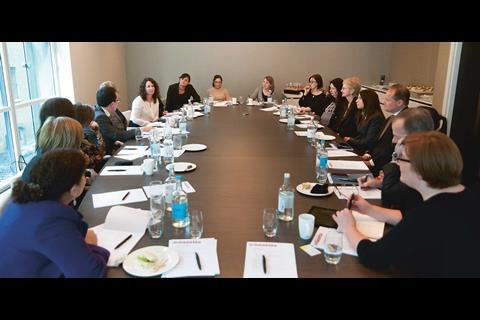
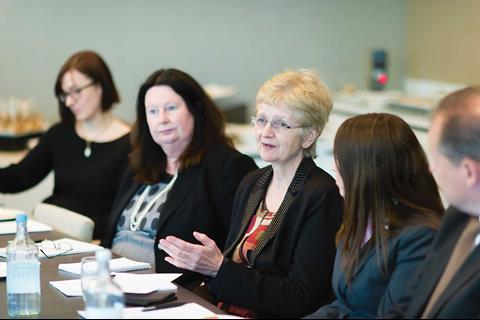
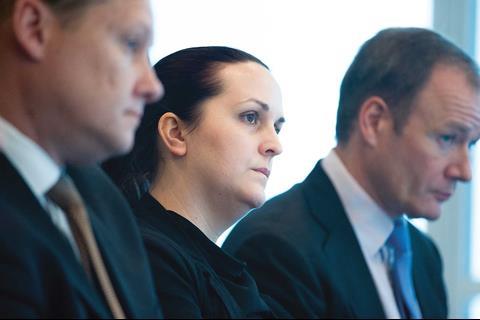
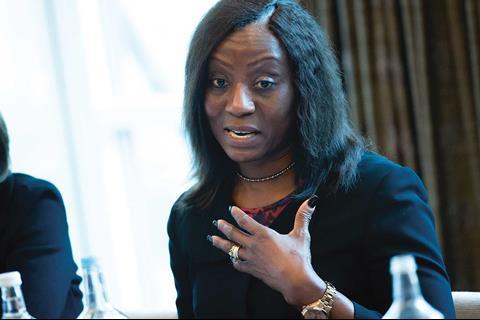
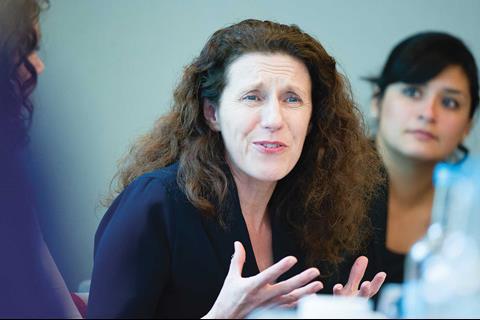
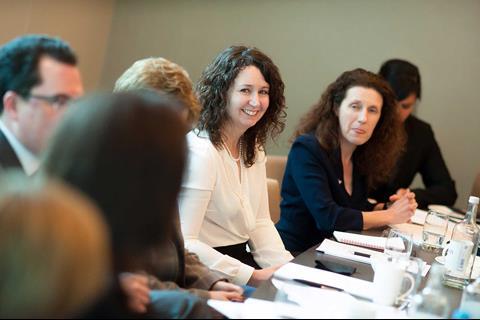
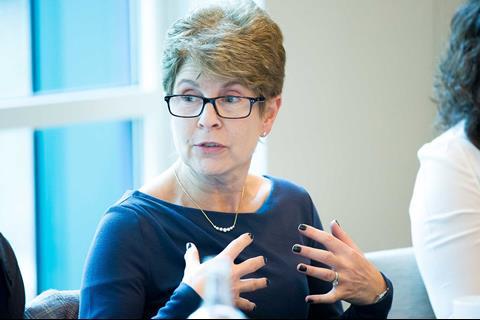

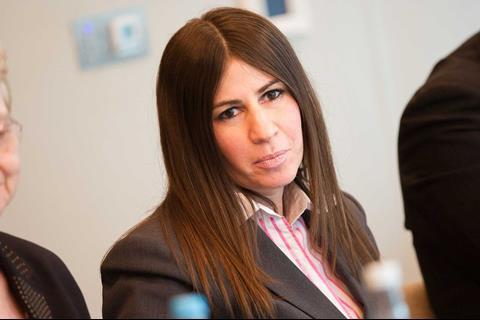
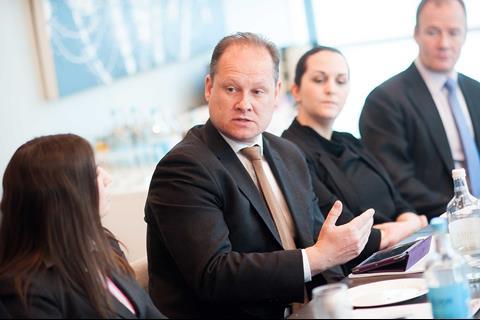








No comments yet